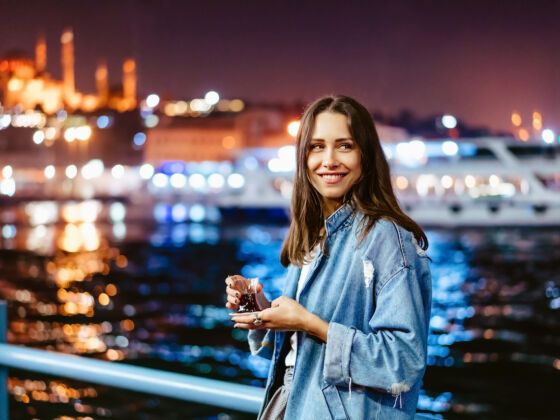1. Don’t… stay in Taksim.
Most buildings in Taksim (home to many popular clubs) were constructed before the era of enormous nightclub sound systems — they don’t muffle the party. Istanbul’s night-owl tendencies and lack of noise curfews mean the area doesn’t quiet down till the wee hours. No fun for the weary.
Instead, book a bed in Galata or Cankutaran, areas that are centrally located but much calmer by night.
